Oktoberfest
A Global Festival Woven from Bavarian Tradition
2026/09/18 - 2026/10/03
Every autumn, Munich’s Theresienwiese transforms into the site of Oktoberfest, drawing over six million visitors from around the world. This is the world’s largest folk festival, held for 16 to 18 days from mid-September to early October. Locals and tourists alike don dirndls and lederhosen (traditional Bavarian attire), raise one-liter beer steins, and immerse themselves in the music, food, and customs unique to Bavaria. From the lively beer tents to family-friendly amusement parks and spectacular parades, Oktoberfest offers a wide range of experiences for first-timers and culture lovers alike, making it the perfect place to savor authentic Bavarian culture.
Main Attractions
Legendary Beer Tents and Bavarian Hospitality
The heart of Oktoberfest lies in its 17 large and 21 smaller beer tents. These tents are operated by Munich’s six historic breweries, serving beer brewed specially for the festival with a higher alcohol content, poured into hefty one-liter glass mugs. Waitstaff dressed in traditional dirndls and lederhosen sing along with live oompah bands, creating a lively and welcoming atmosphere. Some tents can accommodate up to 10,000 people, and each tent has its own unique theme and decorations, ensuring every visitor finds their perfect spot.
Spectacular Parades and Traditional Costumes
Oktoberfest opens with a grand parade featuring local landlords and brewery representatives. Decorated horse-drawn carriages wind through the city, and the festival officially begins with the mayor tapping the first beer barrel to the call of “O’zapft is!” On the first day, more than 10,000 participants march 7 kilometers in traditional costumes and marksmen’s uniforms, showing off the pride of the Alpine region. Dirndls and lederhosen are everywhere; women’s apron bows indicate their relationship status, and men’s hats are adorned with chamois hair-a classic Bavarian touch.
Amusement Parks, Historic Attractions, and Family Fun
Outside the beer tents, more than 80 amusement rides and attractions await. The Olympia Looping, the world’s largest portable roller coaster, the 80-meter-high Skyfall drop tower, and classic Ferris wheels are favorites. Families love the vintage fairground rides and variety shows, with entertainment for all ages. At night, the grounds are lit up with magical lights and music, making the festival atmosphere even more enchanting.
Bavarian Food and Drink
Oktoberfest is also a feast for the senses. The air is filled with the aroma of roast chicken (halbes Hendl), grilled sausages, and crispy pork knuckles (Schweinshaxe). Giant pretzels, sweet Dampfnudel (steamed yeast dumplings), and candied almonds are crowd favorites. Vegetarians and vegans can enjoy dishes like Käsespätzle (cheesy noodles) and Obatzda (spiced cheese spread). Beer is the star, but local schnapps, gentian spirits, and apple spritzers are also popular. Every bite and sip is a taste of Bavaria’s rich culinary heritage.
Cultural and Historical Background
Oktoberfest began in 1810, when a large horse race was held on the fields outside Munich’s city walls (now Theresienwiese) to celebrate the wedding of Crown Prince Ludwig of Bavaria and Princess Therese. The event was such a success that it became an annual tradition, evolving over the years into a national festival. By the late 19th century, the grounds were illuminated, and beer tents, food stalls, amusement rides, street performers, and music venues were added, turning Oktoberfest into a truly national celebration. The festival period was gradually extended, and the start date was moved to September for better weather, with only the final weekend now falling in October.
Oktoberfest is a symbol of the traditions and pride of Bavaria, embodying the spirit of “Gemütlichkeit” (friendliness and coziness). Only beer brewed within Munich city limits is served, and the event brings together local food, music, and traditional costumes, allowing visitors to experience the very essence of Bavarian culture. The festival has survived wars, epidemics, and economic crises, continuing for over 200 years. After being canceled in 2020 and 2021 due to the pandemic, its revival in 2022 underscored the enduring value of tradition.
Today, Oktoberfest is one of the world’s largest beer festivals, drawing over six million visitors each year and generating more than 400 million euros in economic impact. Beyond beer and food, the amusement rides, shows, traditional costumes, and souvenirs are also hugely popular, making Oktoberfest a vital driver of the local economy and tourism industry. More than just a beer festival, Oktoberfest is a living cultural heritage where people of all ages and backgrounds come together to share in the warmth and pride of Bavaria.
Participant Voices
To celebrate my 30th birthday, I went to Oktoberfest with a big group of friends. We picked our favorite beer tent on the official website months in advance, coordinated everyone’s schedules to meet the 10-person reservation rule, and were thrilled when we finally secured a table. On the day, we arrived early and were surrounded by people in dirndls and lederhosen, raising giant beer steins for toasts. We sang along with the live band, linked arms with cheerful Germans at the next table, and felt like we were living in a movie scene.
After leaving the beer tent, we headed to the amusement park area for roller coasters, haunted houses, and, of course, the famous Ferris wheel. From 48 meters up, the view of the festival was stunning-colorful tents, crowds, and at night, sparkling lights that made the whole place feel like the true “beer city.” In the Ferris wheel gondola, we snapped photos together, while the aroma of grilled sausages and pretzels drifted on the breeze and the distant sound of band music filled the air-every moment was imprinted on my senses.
I was blown away by the scale and energy, and by the way you could toast and laugh with complete strangers. I left feeling certain I’d be back again someday.
Fun Facts
- Oktoberfest attracts over 6 million visitors annually, with more than 7 million liters of beer consumed.
- The festival was originally held in October, but was moved to September for better weather.
- Only beer brewed within Munich city limits is served at Oktoberfest.
Festival Dates
Oktoberfest is held every year at Theresienwiese in Munich, from mid-September to early October. The festival ends on the first Sunday in October, but if that falls on a public holiday, it may run through October 3rd.
The event schedule is subject to change. Please check the official website for the most up-to-date information.
Media
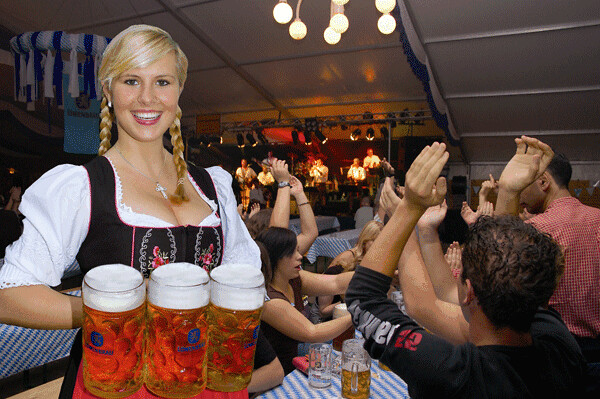
photo by Autobahn Adventures
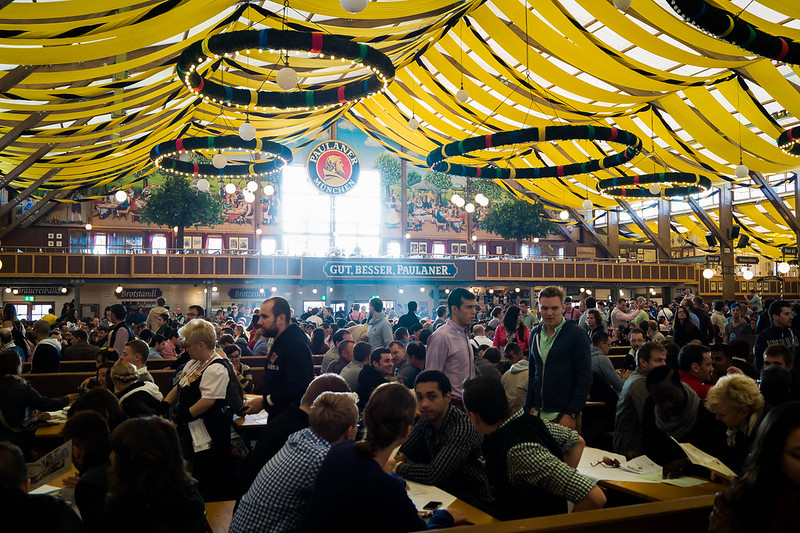
photo by randompics 54
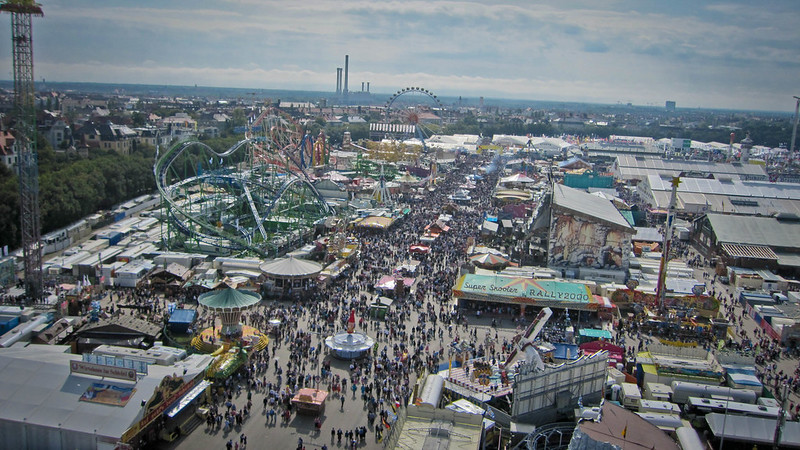
photo by Anthony Bargain
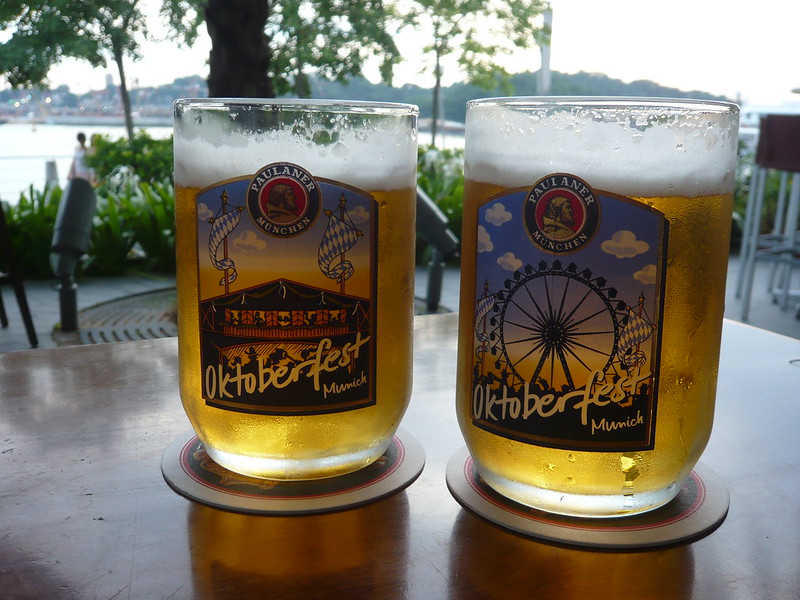
photo by simplicite ❤
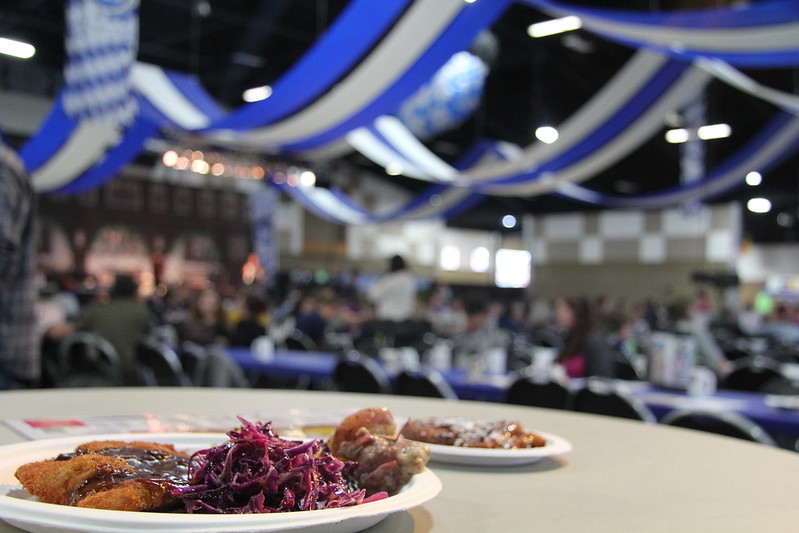
photo by Andrea Morrison
Information
| Name | Oktoberfest |
| Country | Germany |
| Area | Munich, Theresienwiese |
| Date | 2026/09/18 - 2026/10/03 |
| Link |
Upcoming Festivals
Kukeri(Surva) Bulgaria
Bulgaria’s Festival of Spirits, Fire, and Bells That Drives Away Winter
2026/01/22Dinagyang Philippines
Iloilo’s Thunderous Festival of Faith, Tradition, and Dance
2026/01/22The Northern Lights Festival (Nordlysfestivalen) Norway
A Tromsø Miracle: Music and Aurora Dancing in the Arctic Night
2026/01/25Carnavales de Ituren y Zubieta Spain
Ancient Echoes and the Festival that Awakens Spring in the Basque Mountains
2026/01/26Up Helly Aa United Kingdom
A Night When Fire and Viking Pride Blaze in Shetland
2026/01/29Winterlude Canada
A Wonderland of Ice, Light, and Smiles in Canada’s Capital Region
2026/01/30Carnival of Viareggio (Carnevale de Viareggio) Italy
A Spectacular Parade of Giant Papier-Mâché Masterpieces
2026/01/30Fiesta de la Candelaria(Virgin of Candelaria) Peru
A Grand Dance Festival of Faith and Folklore Echoing on the Shores of Lake Titicaca
2026/01/31Thaipusam Malaysia
A Pilgrimage of Prayer and Penance Illuminates Batu Caves
2026/01/31Jaisalmer Desert Festival India
When Rajasthan’s Golden Dunes Dazzle with Color and Culture